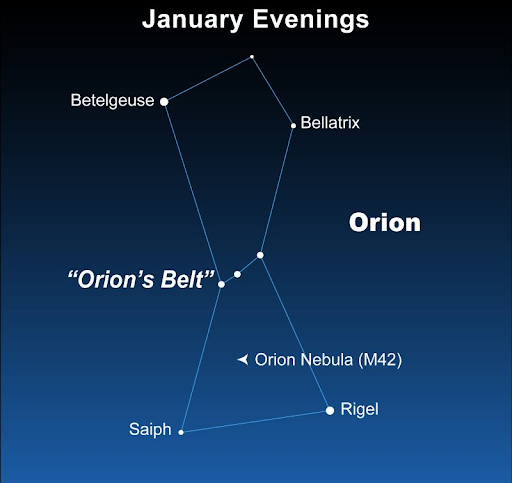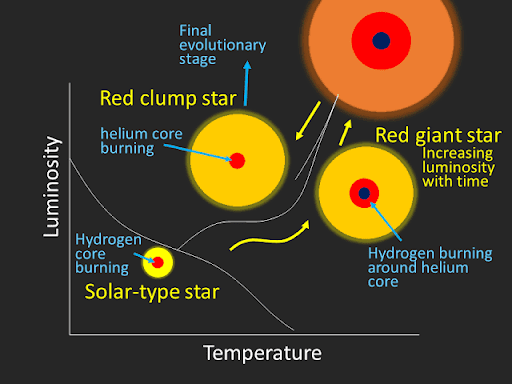Free Courses Sale ends Soon, Get It Now


Free Courses Sale ends Soon, Get It Now



Disclaimer: Copyright infringement is not intended.
Research has uncovered surprising findings about Betelgeuse, which is one of the brightest stars in the night sky.
|
About |
They are Red giants 100,000 times brighter and 400 million times larger than the Sun. It is the second-brightest star in the Orion constellation, with irregular brightness changes debated by researchers. (Note: Orion's brightest star is Rigel). Astronomers found the stage of the red giant star Betelgeuse by studying the pulsations. |
|
Pulsations in the Betelgeuse |
It has two pulsation cycles, one over a year and another around six years. Pulsations in the star suggest Betelgeuse is approaching a supernova explosion. Pulsation in stars is the periodic expansion and contraction of the outer layers of a star, which causes change in luminosity. |
Orion is a set of stars which are seen during winter in the northern hemisphere. It is one of the 88 constellations in the modern day.
It is named to mean a hunter in Greek mythology.
Its two brightest stars are Rigel and Betelgeuse. Both are among the brightest stars in the night sky and both are supergiants.

Red giants
They are stars which have run out of hydrogen fuel for nuclear fusion which are fusion of two hydrogen isotopes to form helium in stars.
The core of the star collapses, and the plasma shell around the core warms up enough to fuse hydrogen.
This extra heat causes the dramatic expansion of the star's outer layers making it a giant red star. Must read
Must read
Sources:
|
PRACTICE QUESTION Q.Consider the following statements about the “Betelgeuse” recently seen in the news:
How many of the above statements is/are correct? A.Only one B.Only two C. All Three D.None Answer: B Explanation: Statement 1 is correct: They are Red giants 100,000 times brighter and 400 million times larger than the Sun. Astronomers found the stage of the red giant star Betelgeuse by studying the pulsations. Statement 2 is correct: It is the second-brightest star in the Orion constellation, with irregular brightness changes debated by researchers. Statement 3 is incorrect: It has two pulsation cycles, one over a year and another around six years. Pulsations in the star suggest Betelgeuse is approaching a supernova explosion. Pulsation in stars is the periodic expansion and contraction of the outer layers of a star, which causes change in luminosity. |
© 2024 iasgyan. All right reserved